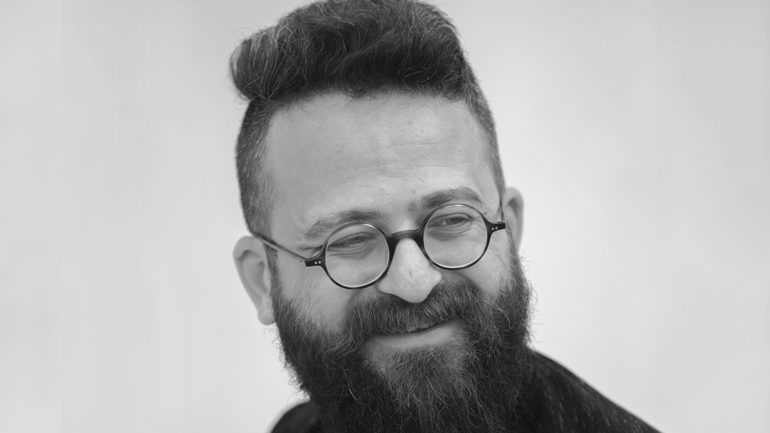Director Mahmoud Sabbagh on Pushing Boundaries in Saudi Arabia With His New Film
By Nick Vivarelli
LOS ANGELES (Variety.com) – Young Saudi director Mahmoud Sabbagh’s groundbreaking romcom “Barakah Meets Barakah,” about the complexities of dating among his compatriots, made a splash at the 2016 Berlinale and became his country’s contender for the foreign-language Oscar. His new film is black comedy “Amra and the Second Marriage,” in which a 40-something housewife “feels suffocated by a very closed society,” as he puts it.
Sabbagh spoke to Variety at the Cairo Film Festival about pushing the cultural envelope in Saudi Arabia, which recently ended its ban on cinemas but has now been widely condemned for orchestrating the killing of dissident journalist Jamal Khashoggi in Istanbul.
This is a government-approved production, yet it packs a feminist punch, shows pot-smoking, and features a bogus imam. How did you pull it off?
My cinema really is about pushing artistic limits, and I hope I pushed a bit further this time, though I don’t want to be too radical because I don’t want to encumber the whole experience. I have a responsibility when it comes to Saudi cinema and am still trying to circumvent censorship. But actually, though we don’t a have a prolific film scene, there are lots of TV series being produced in Saudi….Some of these shows…touch on the same issues, sometimes even more bluntly than the way I did.
Most of the actors are Saudi. How did you find them?
The first thing I did, even before any other type of pre-production, is I started casting. I would call any and all casting agents – actually, anyone I could think of – and most of the people whom I saw were not [professional] actors. I was looking for characters that fit the black comedy mold. I’d say I succeeded in casting up to 90% of the film locally. But there are some types I just could not find.
Will “Amra” be shown in ?
Hopefully. In Saudi…there is a license for shooting and there is a license for screening. With the new cinemas being built…we will apply and we will see. If the film gets a[n] [age] restriction, that’s fine. If they want to make some minor cuts, as often happens in the [Persian] Gulf, that’s also fine. But I want the director’s cut to remain [intact] on most of the platforms. I’m hoping that through this film I can push the boundaries for national independent cinema in Saudi.
Has “Barakah” been shown in movie theaters in Saudi?
No, because there were no movie theaters at the time. The TV rights were bought by Saudi media conglomerate Rotana, and the Saudi national airline bought the rights to show it in their in-flight entertainment system. In order to see the movie, people I know would buy a [plane] ticket from Jeddah to Dammam, which is a two-hour flight. Then they would message me! As much as it pleased me, it also made me cringe, because seeing a movie in a very small screen is problematic. But to be honest, more than two years after “Barakah” broke out, I know that a lot of people in Saudi have seen it, whether on TV or on Netflix or on airplanes, or at festivals, or even pirated from the Internet. Also, last month I got the green light to screen “Barakah” in a public screening in Riyadh.
How did you finance “Amra”?
I continue to have patrons of the arts supporting me. They are supporting what I consider my real motive [for filmmaking], which is to promote social progress in Saudi. “Barakah” had to do with social and class hierarchies, gender hierarchies. And “Amra” has the same core: It’s about patriarchy, it’s about toxic masculinity, it’s about misogyny, it’s about philogyny and it’s about women. While I was growing up, I saw some very crushing experiences for women who had similar situations [to the film]. These were smart, well-educated women….I just felt obliged to tell this story and also to start some sort of a discussion when it comes to women’s rights.
With the big drive underway to launch a film industry in Saudi, why isn’t there a film fund for local directors?
I recently did an interview in Ocaz, a leading Saudi newspaper, in which I attacked the local film council. It’s nothing personal…I can always work things out…but my peer filmmakers in Saudi are struggling….They have a fresh storytelling approach, and they are just lingering in limbo because there is no funding yet.
From a purely pragmatic standpoint, do you perceive the Khashoggi murder as a possible setback to launching a film industry in Saudi? Especially in terms of the involvement of Hollywood and the West?
I don’t think it’s going to be a setback. The fact that “Amra and the Second Marriage” was recently shot and licensed [in Saudi] and with all these ambitious plans for cinema coming down the pipeline – I think we have to cherish this fact. There is real reform and change happening in Saudi. It’s very fast. We really are in an era of emancipating women and art. For the first time there are public endorsements for art and [art] institutions are being built. We can always discuss what should come first, but there is a new energy. It’s a mixture of top-down and grass roots. Artists and women are back in the public sphere and it’s really not a cosmetic thing. We are moving forward faster than anytime before….I’m optimistic about Saudi being able to have a spot on the international cinema map.
So if the government launches a fund, will you take their money?
I’ll be the first to apply.
[Editor’s note: The Saudi Public Investment Fund is an investor in Variety parent company Penske Media Corp.]

